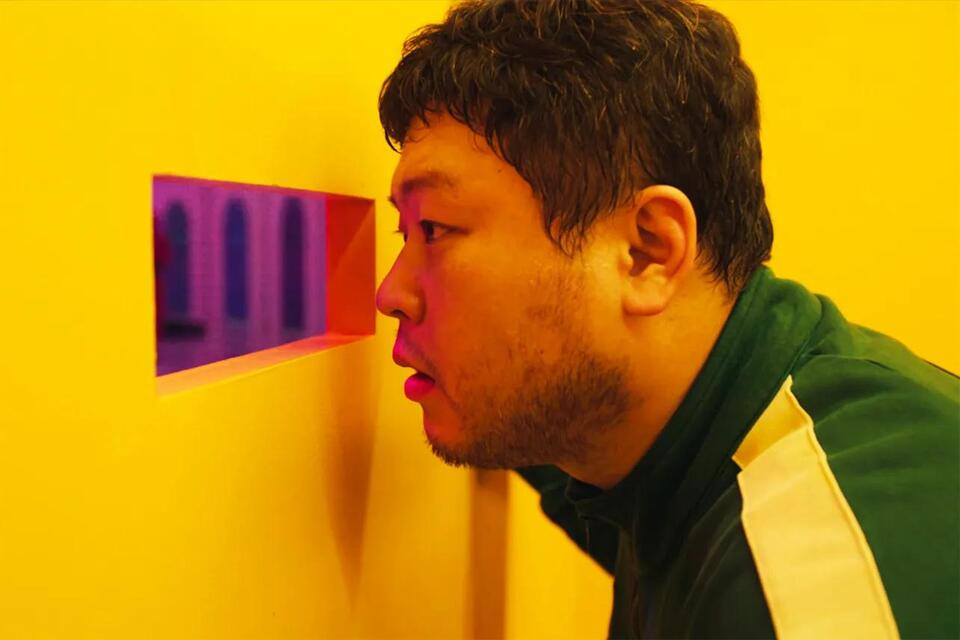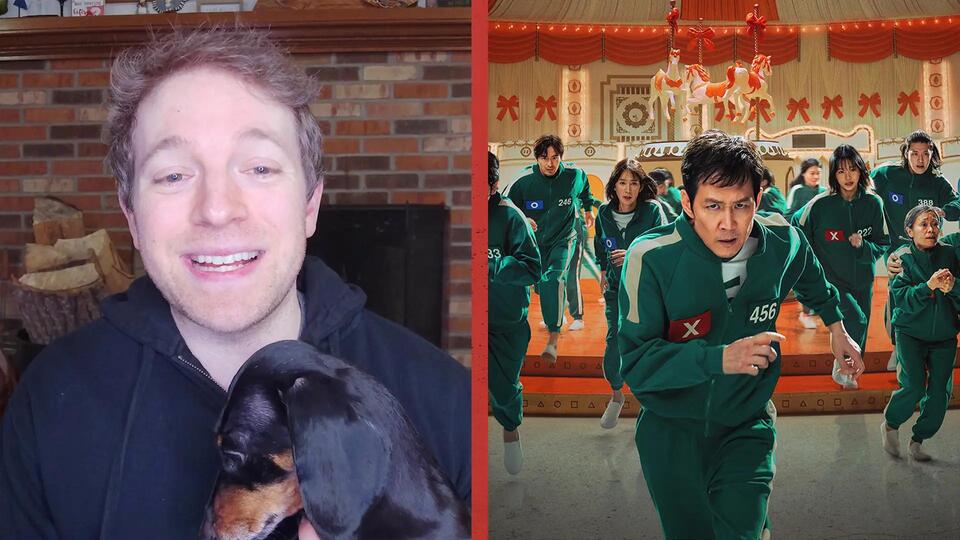Squid Game Season 2 Episode 8 promises a captivating continuation of the deadly games and complex characters that defined the hit series. This episode delves deeper into the psychological impact of the games, exploring the emotional turmoil of returning players and introducing new antagonists. Expect a thrilling narrative filled with unexpected twists, moral dilemmas, and stunning visuals that amplify the show’s already potent social commentary.
Analysis of the episode will dissect the intricate plot points, examining the evolving relationships between characters, the innovative game designs, and the powerful symbolism woven throughout. We will explore how the episode builds upon the themes of Season 1, while simultaneously forging its own unique path. The social and political commentary, a hallmark of the series, will be examined within the context of Episode 8’s narrative.
Squid Game Season 2 Episode 8: A Deep Dive
Episode 8 of Squid Game Season 2 marks a pivotal point in the narrative, significantly developing characters, advancing the plot, and deepening the show’s thematic exploration. This analysis examines the episode’s key aspects, from character arcs and plot points to symbolism and social commentary.
Character Development in Episode 8
Gi-hun’s emotional state in Episode 8 is characterized by a complex blend of guilt, determination, and a simmering rage fueled by the injustices he witnessed and experienced. His motivations are driven by a desire for revenge against the VIPs and a commitment to dismantling the games, fueled by his profound understanding of the systemic inequalities that perpetuate the cycle of violence and exploitation.
The introduction of new characters provides further insight into the game’s inner workings and the motivations of its participants. For instance, a new player might display a surprising level of resilience and cunning, forcing Gi-hun to re-evaluate his strategies. Comparing Season 1’s key players to their Season 2 counterparts reveals significant shifts in their perspectives and moral compasses.
Sang-woo’s betrayal continues to haunt Gi-hun, while the emergence of unexpected alliances and betrayals among returning characters further complicates the moral landscape of the games. Relationships between major characters evolve through intense shared experiences and betrayals, forging new bonds while fracturing old ones.
Plot Points and Narrative Structure of Episode 8
The central conflict in Episode 8 revolves around Gi-hun’s relentless pursuit of the VIPs and his attempts to expose their involvement in the games. The episode unfolds through a series of escalating confrontations and strategic maneuvers, culminating in a high-stakes showdown. Pivotal moments include strategic alliances, unexpected betrayals, and glimpses into the inner workings of the organization running the games.
Flashbacks might offer insights into the origins of the games or the motivations of key players, while foreshadowing might hint at future conflicts and alliances. The episode’s ending leaves the audience on the edge of their seats, hinting at a potential shift in power dynamics and the ultimate fate of the game’s participants.
Speculation is rife regarding the plot of Squid Game Season 2 Episode 8, with many fans theorizing about the fate of key characters. Some believe a surprising twist might involve a seemingly unrelated element, perhaps even referencing the unusual listings found on sites like knoxville tn craigslist pets , suggesting a bizarre connection to the game’s creators. Ultimately, however, the episode’s true narrative remains a closely guarded secret until its release.
Themes and Symbolism in Episode 8, Squid Game Season 2 Episode 8

Source: particlenews.com
Episode 8 continues to explore the recurring themes of class inequality, societal pressures, and the complexities of human nature. The games themselves serve as a microcosm of societal structures, highlighting the exploitation of the vulnerable and the moral compromises made in the pursuit of survival. Symbolism plays a crucial role, with recurring motifs and visual cues reflecting the deeper thematic concerns.
For example, the use of color might signify power dynamics or emotional states, while specific game elements might symbolize broader societal issues.
| Season 1 Symbol | Meaning | Season 2 Episode 8 Symbol | Meaning |
|---|---|---|---|
| The Giant Doll | Childhood innocence corrupted by deadly competition | A specific game element (e.g., a particular object or setting) | (Example: A specific type of weapon or obstacle in the game could symbolize the brutality of the system.) |
| The Dalgona Candy | The precariousness of life and the pressure to succeed | (Example: A specific type of weapon or obstacle in the game could symbolize the brutality of the system.) | (Example: The vulnerability of the participants in the face of overwhelming odds.) |
| The Red Light, Green Light game | The blind obedience demanded by authority | (Example: A specific type of weapon or obstacle in the game could symbolize the brutality of the system.) | (Example: The constant surveillance and manipulation exerted by the game organizers.) |
| The Squid Game | The ultimate test of survival and the brutal nature of capitalism | (Example: A specific type of weapon or obstacle in the game could symbolize the brutality of the system.) | (Example: The ultimate confrontation between Gi-hun and the forces of oppression.) |
Visual elements such as camera angles, lighting, and color palettes are used to enhance the thematic message, creating a sense of claustrophobia, tension, and moral ambiguity.
Game Design and Mechanics in Episode 8

Source: particlenews.com
Episode 8 features a new game with unique rules and mechanics. The game’s complexity and lethality are designed to push the players to their physical and psychological limits. This new game can be compared and contrasted with the games in Season 1, highlighting both similarities and differences in terms of their design, mechanics, and the challenges they present to the players.
- Season 1: Red Light, Green Light (simple rules, high lethality), Dalgona Candy (skill-based, moderate lethality), Tug-of-War (teamwork-based, high lethality), Marbles (psychological manipulation, moderate lethality), Glass Bridge (risk assessment, high lethality), Squid Game (physical skill and strategy, high lethality).
- Season 2 Episode 8: (Describe the new game, its rules, and level of complexity and lethality).
A visual representation of the game’s progression would show the players navigating a complex and dangerous environment, with visual cues highlighting the strategic choices they make and the challenges they face. The use of color, lighting, and camera angles could convey the tension, suspense, and moral ambiguity inherent in the game’s design.
Social Commentary and Cultural References in Episode 8
Episode 8 continues the show’s sharp social commentary on global issues, particularly focusing on the widening gap between the wealthy elite and the struggling masses. The depiction of the VIPs highlights the moral bankruptcy and depravity of unchecked power and wealth. Cultural references and allusions might be used to further emphasize the themes of exploitation and systemic inequality. The episode’s portrayal of the game’s participants reflects current social and political climates, highlighting issues such as economic disparity, social injustice, and the psychological toll of systemic oppression.
Final Review: Squid Game Season 2 Episode 8
Squid Game Season 2 Episode 8 ultimately leaves viewers on the edge of their seats, raising more questions than it answers. The episode masterfully blends thrilling game mechanics with poignant character studies, forcing viewers to confront uncomfortable truths about society and human nature. The implications of the episode’s ending are far-reaching, setting the stage for a dramatic conclusion to the season.
The intricate weaving of symbolism, social commentary, and suspenseful gameplay creates an unforgettable viewing experience, solidifying the show’s position as a cultural phenomenon.
